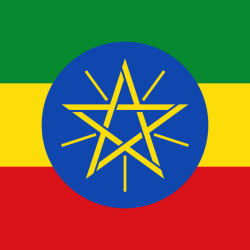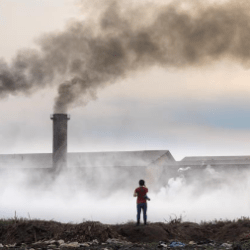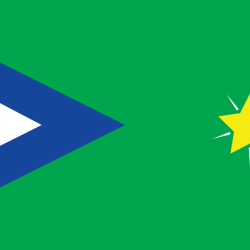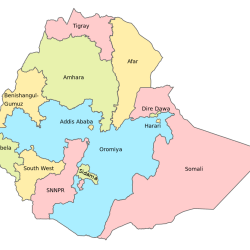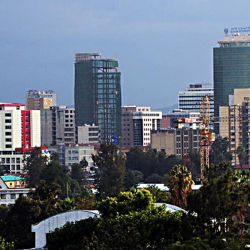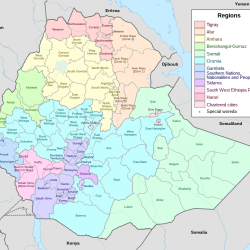The Constitution of Ethiopia, Article 36: Rights of Children
- Every child has the right:
(a) To life;
(b) To a name and nationality;
(c) To know and be cared for by his or her parents or
legal guardians;
(d) Not to be subject to exploitative practices, neither to
be required nor permitted to perform work which
may be hazardous or harmful to his or her education,
health or well-being;
(e) To be free of corporal punishment or cruel and
inhumane treatment in schools and other institutions
responsible for the care of children. - In all actions concerning children undertaken by public
and private welfare institutions, courts of law, administrative authorities or legislative bodies, the primary
consideration shall be the best interests of the child. - Juvenile offenders admitted to corrective or rehabilitative
institutions, and juveniles who become wards of the State
or who are placed in public or private orphanages, shall be
kept separately from adults. - Children born out of wedlock shall have the same rights as
children born of wedlock. - The State shall accord special protection to orphans and
shall encourage the establishment of institutions which
ensure and promote their adoption and advance their
welfare, and education
Ethiopia’s Rights of Children: A Detailed Examination of Article 36
Ethiopia, as a signatory to various international conventions on children’s rights, has enshrined robust protections for children in its legal framework. Article 36 of the Ethiopian Constitution comprehensively outlines the rights of children, ensuring their protection, well-being, and development. This article aligns with global standards such as the United Nations Convention on the Rights of the Child (UNCRC) and the African Charter on the Rights and Welfare of the Child.
Key Provisions of Article 36
1. Fundamental Rights of Children
Article 36 establishes several fundamental rights for children, ensuring their dignity, safety, and development. These include:
- Right to Life: Every child has an inherent right to life, emphasizing the state’s duty to protect children from threats such as violence, neglect, and harmful traditional practices.
- Right to a Name and Nationality: Children are entitled to identity from birth, which is crucial for their legal recognition, access to social services, and protection under the law.
- Right to Parental or Guardian Care: Children have the right to be raised by their parents or legal guardians. This provision underscores the importance of family in a child’s upbringing and obligates the state to intervene only when necessary to protect the child’s well-being.
- Protection from Exploitative Labor: Children must not be subjected to exploitative labor that could endanger their education, health, or overall well-being. This aligns with international labor laws that prohibit child labor in hazardous environments.
- Freedom from Corporal Punishment and Inhumane Treatment: Schools and institutions responsible for children’s care must not subject them to corporal punishment or cruel and degrading treatment. This provision promotes discipline methods that respect children’s dignity.
2. Best Interests of the Child Principle
In all matters involving children—whether handled by courts, legislative bodies, administrative authorities, or private welfare institutions—the child’s best interests must be the primary consideration. This principle ensures that policies and decisions affecting children prioritize their welfare and development.
3. Special Protection for Juvenile Offenders
Children who are placed in corrective or rehabilitative institutions, orphanages, or state care must be separated from adults. This provision safeguards them from potential abuse, negative influences, or exploitation. It also aligns with international standards on juvenile justice, which emphasize rehabilitation over punishment.
4. Equal Rights for Children Born Out of Wedlock
Article 36 explicitly guarantees that children born outside of marriage have the same legal rights as those born within wedlock. This provision helps combat discrimination and ensures that all children, regardless of their parents’ marital status, receive equal protection and opportunities.
5. Protection and Welfare of Orphans
The state has a duty to provide special protection to orphans by supporting institutions that facilitate adoption, ensure proper care, and promote their welfare and education. This commitment helps provide a stable and nurturing environment for children without parental care.
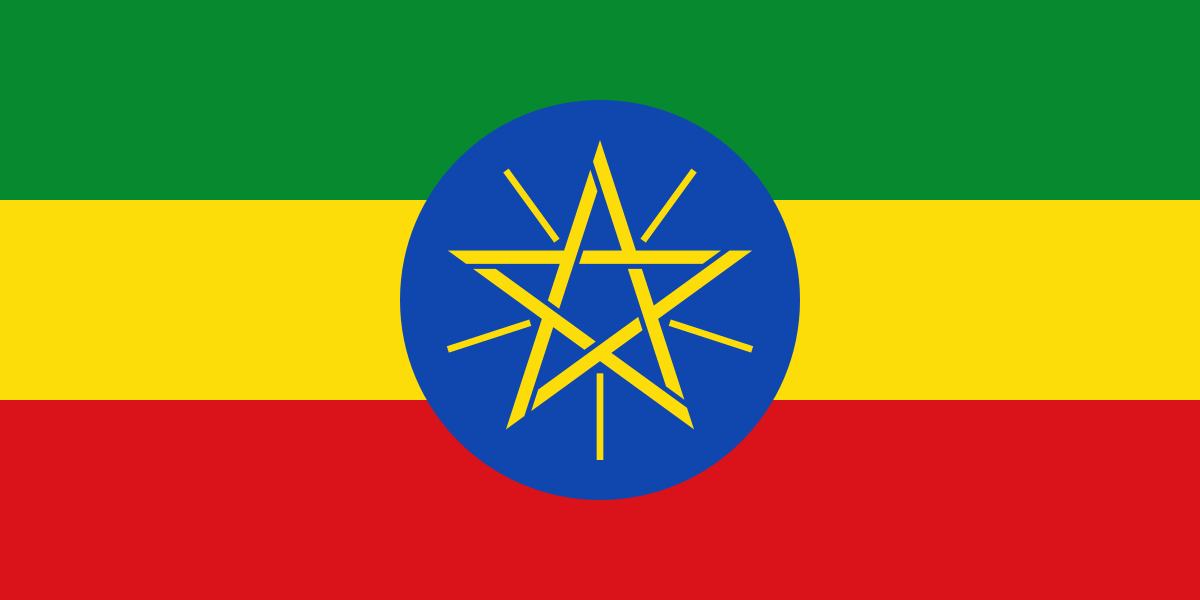
Implementation and Challenges
While Ethiopia has made strides in child protection through legal reforms and institutional mechanisms, challenges remain in fully implementing Article 36. Some key issues include:
- Child Labor: Despite legal prohibitions, child labor persists, particularly in rural areas and informal sectors.
- Corporal Punishment: While banned in schools and institutions, enforcement mechanisms need strengthening to eliminate such practices completely.
- Access to Justice for Children: Ensuring that juvenile offenders receive rehabilitative rather than punitive measures remains a challenge due to resource constraints.
- Orphan Welfare: Many orphaned children still lack access to adequate care, despite government and NGO efforts to improve orphanage conditions and adoption processes.
